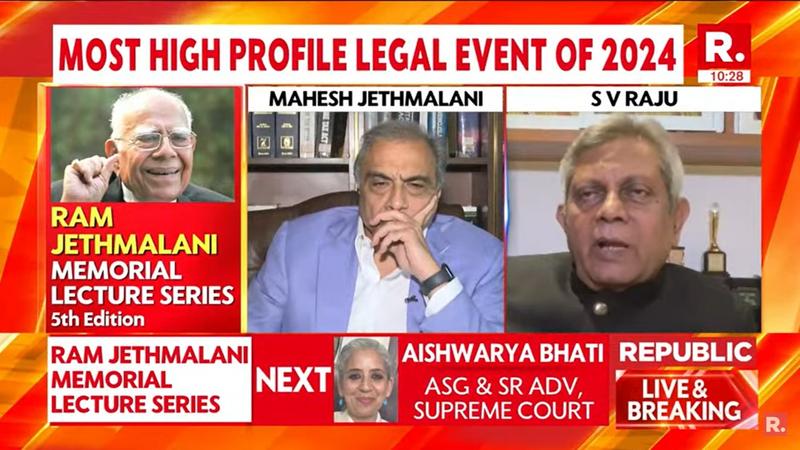Published 11:27 IST, September 15th 2024
How Being a First Time Offender Affects Penalties: ASG SV Raju Explains
In the 5th edition of the Ram Jethmalani Memorial Lecture Series, ASG SV Raju explained about the new initiatives and relaxations for the first time offenders

New Delhi: In the 5th edition of the Ram Jethmalani Memorial Lecture Series, Republic Media Network's Editor-in-Chief Arnab Goswami highlighted the legacy of legal luminary Ram Jethmalani on Sunday, further speaking at the event Additional Solicitor General of India SV Raju explained about the new initiatives and relaxations for the first time offenders in the New Criminal Laws recently passes by the Union government.
The event, brought together the top legal minds of the country to discuss and decode the newly introduced criminal Law, in which law treats first-time offenders with relaxations.
Speaking at the event, Additional Solicitor General SV Raju stated that first-time offenders are treated more leniently under the new criminal laws. He said, "If the accused has served 50% of their sentence, they are entitled to bail. However, for first-time offenders, this is reduced to 1/3rd of the sentence. They can apply for bail after completing 1/3rd of their punishment."
He further stated that the new law recognises the difference between first-time and habitual offenders. "A first-time offender is treated differently by the law because they are not considered habitual offenders. In the case of first time offender, the jail superintendent can also file an application requesting bail for the offender," said ASG Raju
ASG Raju also spoke about the provisions in the Bhartiya Nyaya Dand Sanhita that offer additional relief to first-time offenders. He explained that for minor offenses carrying a punishment of less than three years or for individuals over the age of 60, arrest is not permitted without the approval of an officer above the rank of Deputy Superintendent of Police
Updated 13:08 IST, September 15th 2024




